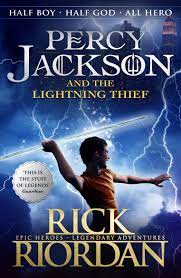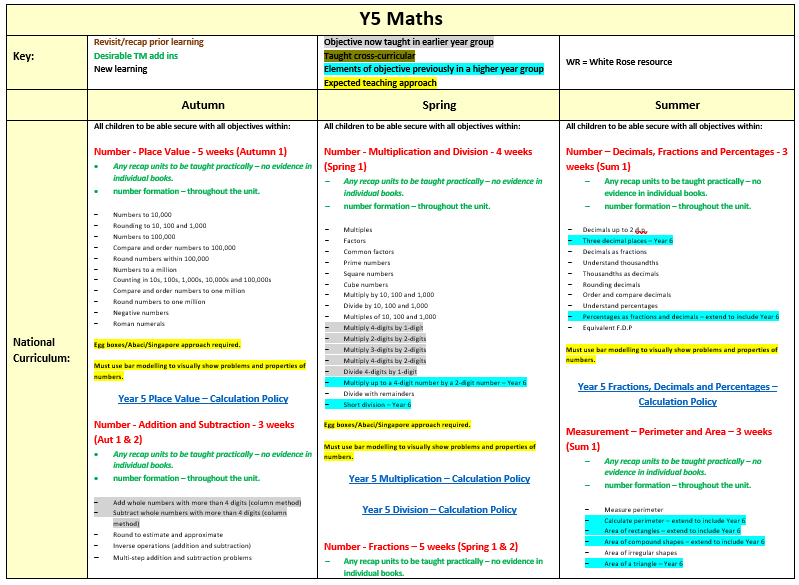Year 5
Meet the Team

Mr Malcolm - Class Teacher

Miss Bibi - Class Teacher

Mrs Stroud - Learning Support
Year 5 class names and author link
Our Year 5 classes are named after Phillip Pullman and Michael Rosen.
Year 5 start and end of day handover information
Handover at start of the school day
Pupils are dropped off at the main school entrance. All children must be accompanied onto the school site by an appropriate adult and observed entering the school site. This is a parental responsibility. NO children should walk to school unaccompanied.
Collection from school at the end of the school day
Pupils are collected from the MUGA on the KS2 playground. All children will be collected by an appropriate adult at the end of the school day.
These are extracts from our Safeguarding Policy.
Keeping Year 5 pupils safe
Mobile phones in school
Mobile phones are not allowed in school unless there are exceptional reasons, which need to be put in writing by the Parent/Carer to the Headteacher. In these unusual situations, the phone is turned off and handed to the office at the start of the day and collected at the end of the day.
Any mobile phone found in school without permission will be confiscated and parents will be contacted. This rule applies for all extra-curricular activities, e.g., discos, residential, etc.
It would never be appropriate for a mobile phone to be concealed in school and used to contact home or 3rd parties during the school day. Given the context of use this could lead to a fixed term exclusion.
Smart watches
Smart Watches are not allowed in school. The only watches that are appropriate are those with limited functionality i.e. tell the time. The ‘Smart Watches’ not allowed in school are watches that have similar functions to a mobile phone such as a camera, messaging system, ability to record conversations etc.
Any Smart Watch found in school will be confiscated, stored in the school office and will be returned to the pupil at the end of the school day.
These are extracts from our Behaviour Policy.
Protective behaviours
We have a Protective Behaviours culture and children regularly identify and update their Network Hand. This ensures that children know which adults they can approach if they are worried, however ‘awful or small’.
Proactive social media reminders
We send regular and proactive reminders to parents regarding social media and always request you check pupil devices regularly and have full access to all their devices and accounts. By working together in this way we work towards keeping pupils safe.
Learning 4 Life
Our Learning for Life lessons allow us to be proactive with teaching children how to keep themselves safe, learn about relationships education, relationships and sex education and health education.
Year 5 curriculum overview
English Curriculum and key texts
We use key texts to motivate and engage learners. Here are the books we will be studying this academic year.


Mathematics Curriculum
We have made a conscious decision to use White Rose as a product; however, we have created our own curriculum overview for Maths. Teachers will use this curriculum overview to deliver the majority of the units outlined within each strand, using White Rose as a supporting resource (example of the curriculum overview is below). As teachers follow the learning journey, pupils will experience mathematics through the CPA and Singapore Maths approach. This ensures that mathematics remains pictorial and enables pupils to use a variety of strategies to solve problems – thus removing barriers and ensuring mathematics is accessible to all. The curriculum has been specifically designed to give pupils the time to master each skill. Early mastery of skills is also encouraged, as skills from the following year group have been naturally linked to, which removes the ceiling on learning outcomes.
There are mathematical units that will be taught using a cross-curricular approach. Pupils should expect to be taught statistics and time through other areas of the curriculum, such as Geography and Science. This enables children to see that mathematics is not a stand-alone subject and has an impact within other subject areas. This also allows for more time within mathematics lessons to teach other units in greater detail and address any misconceptions or gaps in knowledge.

Curriculum Subjects
| Autumn Term | Spring Term | Summer Term | |
| Art | Sculpture | Collage | Printing |
| Computing |
Online safety |
Coding | Spreadsheets |
| Design Technology | Textiles | Nutrition | Mechanics |
| Geography | The UK |
The Americas |
Earthquakes |
| History | Early Islamic Civilisation | Ancient Greece | Ancient Greece |
| Learning 4 Life |
Proud to be me Protective behaviours |
Aiming High Fit 4 Life |
Perfect Planet Education for a Connected World |
| Modern Foreign Languages |
Culture and Vocabulary |
Sentences and Opinions |
Songs and Grammar |
| Music | Rock | Hip Hop | Motown |
| Physical Education |
Gymnastics Tennis |
Swimming OAA |
Flag Football |
| Religious Education |
Christianity |
Hinduism |
Temptation and Forgiveness |
| Science |
Materials and their Properties |
Living Things and their Habitats Forces |
Earth and Space Animals, Including Humans |
Preparing for KS2 SATs
During Year 6, pupils sit the statutory KS2 SATS tests in Reading, Writing and Mathematics. We support pupils in a holistic way by ensuring they are well-prepared, both in terms of learning but also in terms of mental health and well-being.
In Year 6, we adapt the timetable to meet pupil needs, and we build in booster groups to support learner needs. Throughout the year we expose pupils to mock SATS tests and SATS test conditions so that there are no undue worries or surprises.
In exercise books we move away from Learning Ladder assessment and pupils become familiar with TAFs (Teaching Assessment Framework) that are found in their English books. Pupils become very aware of their successes and next steps.
Transition into Year 5
We ensure very supportive and effective transition into Year 5 from Year 4.
In the final half of the summer term, when pupils are in Year 4, they will have the opportunity to meet their new teaching team for Year 5. They will spend time in their new classroom and building to help pupils become more familiar and reduce any worries or anxieties they may have.
For some pupils, including those with additional needs, we create transition booklets with pupils, which are sent home to support their school readiness for their return in September.
Year 5 Reading and home learning
As a school we follow the Little Wandle Letters and Sounds Revised scheme. If your child did not pass the Phonic screening test in Years 1 and 2, they will be in a Phonic catch up intervention. This means your child will bring home a reading Phonic practice book to match their reading level. Your child will be heard to read twice a week and a stamp will be given in their reading record to show this with their books being changed weekly.
Children who are not on Phonics will be given a book to match their reading age from our Nelson assessment. Again children will be heard read to read once a week and a stamp will be given in their reading record to show this with their books changed weekly.
If your child is reading their book with little help, please don't worry that it's too easy-your child needs to develop fluency and confidence in reading.
Listen to them read the book each night and write a comment in their reading record. Remember to give them lots of praise-celebrate their success. If they cannot read a word, read it to them. After they have finished, talk about the book together and use the questions and prompts in the back of the book.
If your child has a reading age of ten or above, they will get to choose a book from our free reader section from the school library. Children will be heard to read once every three weeks and will change their books.
All pupils have been issued with two homework books. Each week, pupils will be given a piece of maths and English homework to complete.
The homework given will reflect the learning taught that week. Therefore, completing the homework issued will provide the opportunity for children to consolidate their learning and teachers to identify gaps in knowledge.
Should any of the Year 5 pupils need support with their home learning, the Year 5 teaching team can provide this throughout the week.
Homework will be issued on a Friday and is due in the following Wednesday.
Water bottles and snacks
Children should make sure they bring a reusable water bottle into school daily - this must only contain water. Children can make use of our water fountains to refill bottles.
We encourage healthy snacks for break time.
PE Days and Kit
- Black or navy shorts and a white t-shirt, or black or navy tracksuit bottoms and sweatshirts. Tracksuits must be plain and not have logos.
- Properly fitting black pumps or plimsolls.
- No jewellery to be worn.
- Everything should be labelled with child's name.
- P.E. kit should be in school every day.
Year 5's PE day is a Thursday.
Year 5 parental support and engagement
Throughout the year, the Year 5 teaching team will provide workshops to inform all Year 5 parents/carers of the expectations set of pupils thought their Year 5 journey.
Support at home is a vital part of pupils achieving success.
How to support your child:
- First and foremost, support and reassure your child that there is nothing to worry about, and they should always just try their best. Praise and encourage.
- Ensure your child has the best possible attendance at school.
- Support your child with the weekly completion of their homework.
- Regular arithmetic (e.g. times tables) rehearsal.
- Listen to your child read regularly and ask questions about the text.
- Talk to your child about what they have learnt at school and what book(s) they are reading (the character, the plot, their opinion).
- Make sure your child has a good sleep and healthy breakfast every morning.
How to support your child with writing:
- Encourage opportunities for writing such as letters to family or friends, shopping lists, notes or reminders, stories or poems.
- Write together.
- Encourage the use of a dictionary to check spelling and a thesaurus to find synonyms and expand vocabulary.
- Allow your child to use a computer for word processing, which will allow for editing and correcting of errors without lots of crossing out.
- Remember that good readers become good writers. Identify good writing features when reading (e.g. vocabulary, sentence structure, punctuation).
- Show your appreciation: praise and encourage, even for small successes